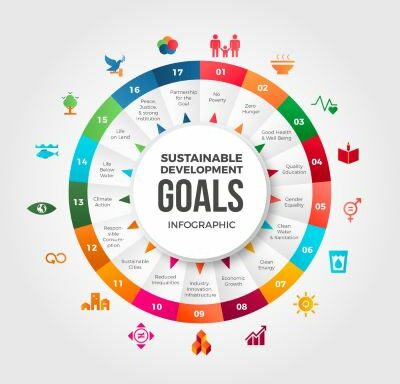The infrastructure sector encompasses the planning, construction, maintenance, and operation of vital systems and facilities necessary for society’s functioning. This includes transportation networks, water and sanitation systems, communication infrastructure, energy generation and distribution, and public amenities such as schools and hospitals. White-collar crime and corporate malfeasance in the infrastructure sector can take various forms, including contract fraud, bid rigging, and corruption in permitting and allocation processes.
The complexity and scale of infrastructure projects provide opportunities for illegal activities, such as bribery of officials, collusion among contractors, and the use of substandard materials to cut costs. Such practices can lead to delays, budget overruns, and quality issues, damaging society and undermining trust in both government and the private sector.
Effective measures to combat white-collar crime and corporate malfeasance in the infrastructure sector include stricter compliance with procurement regulations, strengthening oversight mechanisms, and enhancing ethical standards within organizations. Public awareness, transparency in decision-making processes, and active stakeholder engagement are also essential to prevent corruption and abuse of power.
Safeguarding Integrity and Mitigating Risks
The infrastructure sector encompasses a broad spectrum of industries involved in the planning, design, construction, operation, and maintenance of critical physical and social infrastructure assets. These assets include transportation networks, energy facilities, telecommunications systems, water supply, waste management, and public utilities. Playing a fundamental role in supporting economic development, enhancing quality of life, and ensuring the functionality and resilience of societies, the infrastructure sector is essential for the smooth functioning of modern civilizations. However, like any other industry, the infrastructure sector is susceptible to the risks associated with white-collar crime and corporate malfeasance.
At its core, the infrastructure sector is responsible for building and maintaining the physical and social frameworks that enable societies to function efficiently and sustainably. Transportation networks, including roads, railways, airports, and ports, facilitate the movement of goods and people, connecting communities and driving economic growth. Energy facilities, such as power plants and distribution networks, provide electricity and fuel essential for powering homes, businesses, and industries. Telecommunications systems enable global connectivity and facilitate communication and information exchange. Water supply and waste management infrastructure ensure access to clean water and sanitation services, safeguarding public health and environmental sustainability. Public utilities, including electricity, gas, and water providers, deliver essential services to communities, ensuring their health, safety, and well-being.
Despite its critical importance, the infrastructure sector faces numerous challenges related to fraud, corruption, and unethical practices. Instances of bid rigging, bribery, and collusion in procurement processes can inflate costs, undermine competition, and compromise the quality and safety of infrastructure projects. Moreover, issues such as embezzlement, kickbacks, and conflict of interest can erode public trust in infrastructure development and management.
Furthermore, the infrastructure sector grapples with challenges related to cybersecurity threats, data breaches, and digital fraud as technology becomes increasingly integrated into infrastructure operations and management. Instances of hacking, ransomware attacks, and unauthorized access to critical infrastructure systems can disrupt services, compromise safety, and pose risks to public welfare.
In addition to external threats, the infrastructure sector also faces internal challenges related to corporate governance, compliance, and ethical conduct. Instances of financial misconduct, regulatory violations, and ethical lapses can tarnish the reputation of companies and undermine public confidence in the sector.
To address these challenges, stakeholders within the infrastructure sector must prioritize robust governance frameworks, invest in compliance programs and ethical guidelines, and foster a culture of integrity and transparency. Collaboration between industry stakeholders, regulatory authorities, and oversight bodies is essential to uphold the integrity of the sector, protect public interests, and ensure the delivery of safe, reliable, and sustainable infrastructure services to communities worldwide. By embracing responsible business practices and adhering to ethical standards, the infrastructure sector can continue to fulfill its vital role in supporting economic development, enhancing quality of life, and ensuring the resilience and sustainability of societies while mitigating the risks of white-collar crime and corporate malfeasance.
Regulatory, Operational, Analytical, and Strategic Challenges
In today’s global business landscape, the infrastructure sector grapples with a myriad of regulatory, operational, analytical, and strategic challenges. Regulatory compliance demands are intricate and continually evolving, requiring businesses to navigate a complex web of laws, regulations, and industry standards across multiple jurisdictions. Operational challenges may arise from inefficiencies in supply chain management, procurement processes, or organizational structures. Analytical hurdles include interpreting vast volumes of data to extract meaningful insights, forecasting market trends, and accurately assessing risks. Strategic decision-making necessitates a nuanced understanding of market dynamics, competitive landscapes, and emerging opportunities while balancing short-term objectives with long-term sustainability goals.
Van Leeuwen Law Firm adopts a holistic approach to address these challenges comprehensively. Through rigorous analysis, strategic planning, and tailored solutions, the firm assists infrastructure clients in navigating regulatory complexities, optimizing operational processes, harnessing data analytics for informed decision-making, and aligning strategic initiatives with organizational objectives. Bas A.S. van Leeuwen, attorney, and forensic auditor, renowned for his expertise in financial and economic crime, serves as a trusted advisor, offering strategic guidance tailored to each client’s unique circumstances. His profound understanding of regulatory frameworks, industry trends, and market dynamics enables him to provide invaluable insights and support, ensuring clients remain compliant, agile, and strategically positioned for success.
Investigation, Remediation, Operations, and Transformation
When confronted with allegations of financial misconduct, fraud, or regulatory non-compliance, infrastructure businesses must respond promptly and decisively to mitigate risks and restore trust. Effective investigation is paramount, requiring thorough examination of financial records, interviews with relevant stakeholders, and forensic analysis to uncover underlying issues. Remediation efforts may entail implementing robust internal controls, enhancing compliance protocols, and addressing cultural factors contributing to misconduct. Operational optimization aims to streamline processes, mitigate risks, and enhance organizational resilience, while transformational initiatives focus on fostering a culture of integrity, rebuilding stakeholder trust, and driving sustainable change.
Van Leeuwen Law Firm offers comprehensive support throughout the investigation, remediation, and transformation process. Bas A.S. van Leeuwen, attorney, and forensic auditor lead the charge, leveraging their expertise in financial and economic crime to guide clients through each phase of the journey. With a keen focus on transparency, accountability, and organizational resilience, they collaborate closely with clients to develop tailored strategies that address specific needs and challenges. By combining legal acumen with practical insights, they help clients navigate crises, implement effective remediation measures, and embark on transformative journeys positioning them for long-term success.
Internal Investigations, Advising, Litigating, and Negotiating
Internal investigations play a pivotal role in safeguarding corporate integrity, identifying misconduct, and mitigating legal and reputational risks within the infrastructure sector. Van Leeuwen Law Firm assists clients in conducting impartial and thorough investigations, ensuring that all relevant facts are uncovered and analyzed objectively. Bas A.S. van Leeuwen, attorney, and forensic auditor, renowned for his expertise in financial and economic crime, serves as a strategic advisor, providing guidance on legal implications, litigation strategies, and negotiation tactics.
In cases where litigation is unavoidable, Attorney van Leeuwen represents clients with tenacity and skill, advocating for their interests in courtrooms and negotiation tables alike. Drawing on his deep understanding of regulatory frameworks, investigative techniques, and dispute resolution strategies, he seeks to achieve favorable outcomes while safeguarding clients’ rights and reputations. Through strategic negotiation and robust advocacy, he aims to mitigate legal risks, minimize financial exposure, and protect the interests of his clients at every turn.
Financial and Economic Crime Expertise
Bas A.S. van Leeuwen, attorney, and forensic auditor, stands as a beacon of expertise in the realm of financial and economic crime within the infrastructure sector. With a distinguished career spanning decades, he has earned a reputation for his unwavering commitment to justice, his mastery of complex legal issues, and his track record of success in high-stakes cases. His deep understanding of financial regulations, investigative methodologies, and legal strategies enables him to provide clients with unparalleled guidance and representation across a broad spectrum of matters.
From defending clients against criminal charges to conducting internal investigations and advising on compliance matters, Attorney van Leeuwen leverages his expertise to deliver innovative solutions and optimal outcomes. His proactive approach, attention to detail, and dedication to excellence set him apart as a trusted advisor and advocate for clients facing the most daunting legal and regulatory challenges. Through his leadership and expertise, Van Leeuwen Law Firm remains at the forefront of combating financial crime and protecting the interests of its clients with unwavering dedication and integrity.






